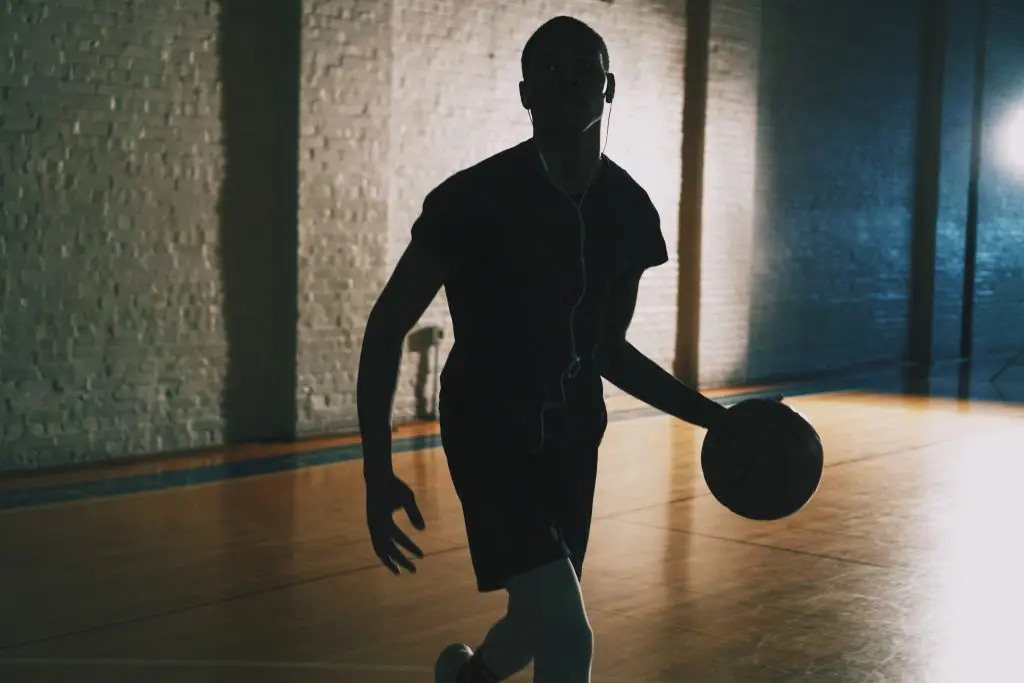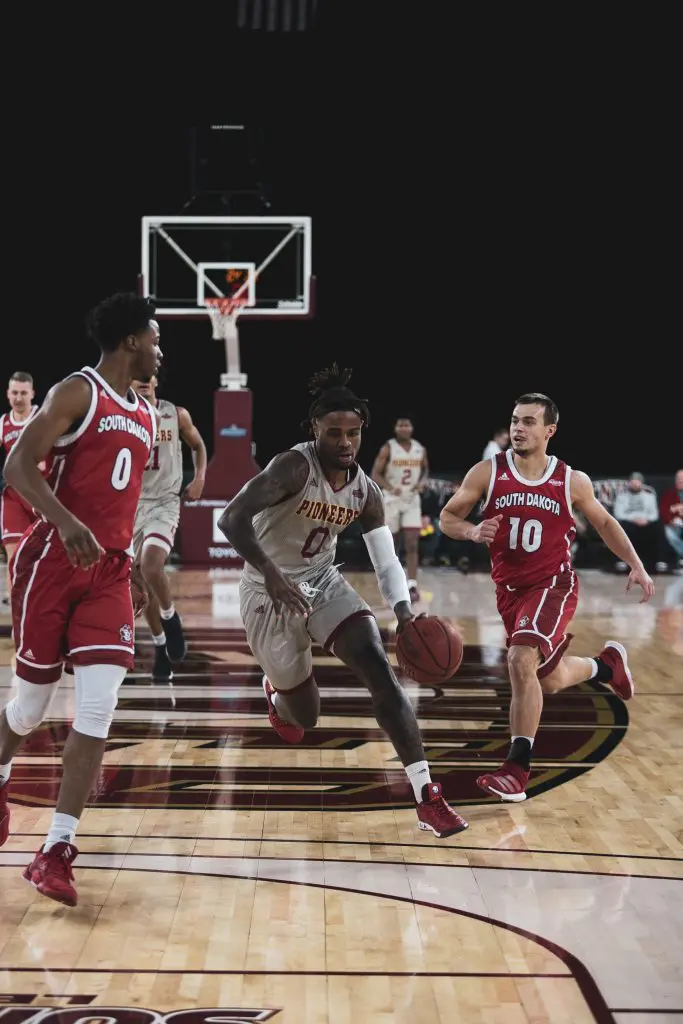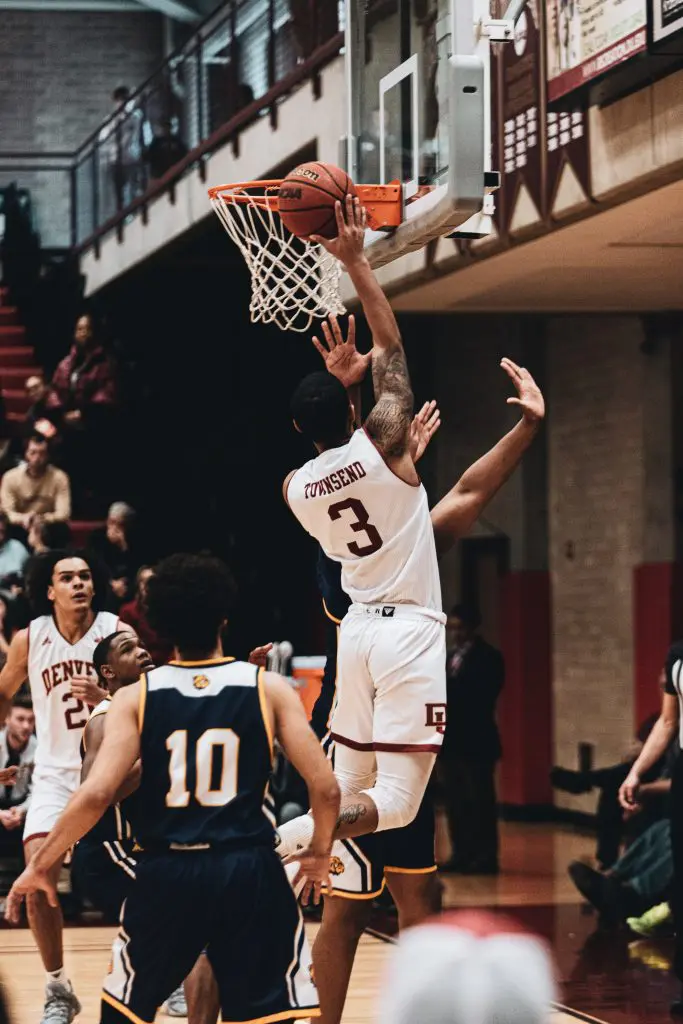Why do NBA Players Sweat so Much?
Whether you’re a casual or avid watcher of the NBA, undoubtedly, you’ve seen NBA players with beads of sweat pouring down their foreheads, requiring floor cleaners to wipe up after them. But just why do NBA players sweat so much?
Below, we are going to discuss just why NBA players sweat so much and what steps can be taken by players to reduce their total level of sweat. In addition, we will look at the best drinks available on the market to help both professional and amateur basketball players to replenish the loss of sodium, electrolytes, and other nutrients through sweat.

What is Sweat?
Sweat, above all else, is a healthy, natural means for your body to cool down. As a result of your body overheating, it will begin to sweat, promoting heat loss through evaporation. Sweat helps to regulate your body’s temperature and is an effective control against overheating.
However, what your sweat is composed of generally depends on which sweat gland the sweat is coming out of. While there are many different types of sweat glands on your body, only two main ones are recognized and are generally important.
- Eccrine Glands – the eccrine glands produce most of your sweat. These glands are highly concentrated on your hands and palms, forehead, and armpit. However, eccrine sweat is generally composed of bits of salt, protein, urea, and ammonia.
- Apocrine Glands – the apocrine glands are larger sweat glands, generally positioned on your armpits, groin, and breast area. The apocrine glands are most often associated with body odor. In addition, as these glands are located near hair follicles, this sweat tends to smell worse.
Why do we Sweat When Playing Basketball?
As mentioned above, sweat is a means for your body to cool off. Sweating when you play basketball is not only normal but also expected. By sweating, your body is able to promote the loss of heat through evaporation on your skin.
While playing basketball, you are engaging in a high intensity sport. Your body, as a result, will begin to warm up. As a means to both control and regulate this increase in temperature, your body will produce sweat through both your eccrine and apocrine glands.
As basketball is a high intensity sport, your body will increase its internal temperature during play. To combat this increase in internal temperature, your body will begin sweating to cool off and regulate your internal temperature.

What Factors Affect the Amount an Individual Sweats?
While sweating is normal and something that affects all people, there are some factors which can increase a person’s sweat production. Not including hyperhidrosis, a condition in which a person sweats excessively, the additional factors which can increase sweat production are below:
- Gender – men tend to sweat more than women
- Age – younger people tend to sweat more than older adults
- Your overall body weight
- Genetics
- Humidity levels
- The type of exercise you are engaged in
Why NBA Players Sweat so Much?
In consideration of the above, it is a bit more understandable as to why NBA players sweat so much. Due to the nature of basketball, particularly in the professional league, competing in a high intensity, back-and-forth game of basketball will naturally result in the production of excessive sweat.
NBA players typically play between 39 to 42 minutes of basketball per game. During this time, a player is expected to play at a high level and one that requires constant motion between offense and defense. This back-and-forth nature of the game, coupled with the intensity of play will raise an NBA players internal body temperature. As a means to regulate this increase in temperature, their body’s will begin to produce excess sweat.
In addition, whereas other sports, particularly baseball and football, have many stoppages and time between plays, basketball simply does not. In a game of basketball, plays between offense and defense continue without many timeouts or stoppages.
This continuous level of play naturally increases a player’s internal body temperature. That is why, so often, we see excessive beads of sweat pouring from a player’s forehead. It is mainly due to the nature of the sport and the players body reacting to the exertion of the game.

How Can NBA Players Limit Their Sweat?
Unfortunately, there is little that an NBA or casual basketball player can do to limit their sweat. Sweat is a natural production and is a result of the increase in a body’s internal temperature. While it is recommended to wear either deodorant or an antiperspirant, those measures only resolve excessive sweating under the armpits.
However, it is recommended that both NBA and casual players carry a sports towel with them. While on the bench or during an intermission, players can utilize the sports towel to remove excess sweat from their foreheads, arms, and chest. Not only will doing so help to remove excess sweat, but particularly when playing on a hardwood floor, doing so will help to reduce the chances of sweat dripping onto the floor and potentially causing a slip and fall.
Best Drinks to Replenish the Loss of Nutrients Through Sweat
Again, while sweating is a normal and expected occurrence, the loss of water, sodium, and other nutrients requires an athlete to replenish those lost nutrients. While it is recommended to consume water before a game of basketball, other specifically tailored drinks may be a better alternative to replenish the electrolytes lost during a game.
In fact, per Kristine Clark, Ph., FACSM, and the director of sports nutrition for Penn State University Park, “the longer you exercise and the more heavily you sweat, the greater the need for a sports drink to help replace these lost micronutrients.”
As such, reaching for your favorite sports drink may in fact be a great option to help you replenish lost nutrients through a game of basketball. In essence, sports drinks provide your body with three main benefits both during and after a rigorous game of basketball.
- Hydration – a basketball player should be consuming adequate amounts of water and sports drinks throughout the day to help keep them hydrated and to counteract the effects of fluid loss through sweat.
- Fuel – in addition, the carbohydrates found in sports drinks can help to delay fatigue and exhaustion. In a study completed by Gatorade, a 12% carbohydrate-electrolyte beverage before a sporting event helped to facilitate retention of performance and improved high-intensity running capacity.
- Electrolytes and Minerals – as your body releases sweat, so too does it release electrolytes, potassium, and other important minerals. To combat this, consuming both water and sports drinks with electrolytes can help to adequately replenish your body of the loss.
